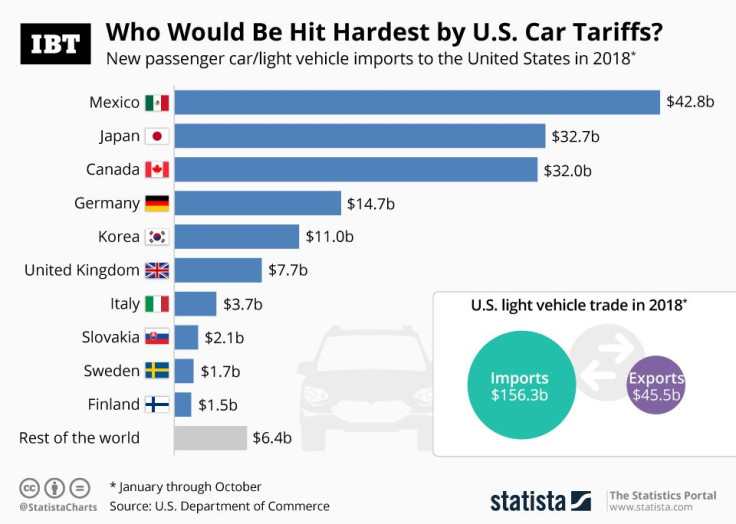Infographic: Who Would Be The Most Affected By US Car Tariffs?

Having repeatedly stated his discontent with the United States' role in world trade, U.S. President Trump has been pushing for a more protectionist policy ever since he took office. Following the formula that enabled him to impose tariffs on steel and aluminum, Trump initiated a trade investigation into whether car imports pose a threat to national security last May, the results of which are now in. While neither President Trump nor the Department of Commerce have publicly discussed the outcome of the investigation yet, rumor has it that the report does indeed deem car imports a national security threat.
While Trump argued in the past that tariffs would help protect American jobs in the automotive sector, the car industry itself has repeatedly stated its disapproval of eventual tariffs on imported vehicles and/or parts. “Tariffs are a tax on our customers and would mean that Americans shopping for a new car would see the prices of many new vehicles increase. Imposing tariffs on imported vehicles and parts would be a mistake, with significant negative consequences for the U.S. auto industry”, the Alliance of Automobile Manufacturers, an industry group representing 70 percent of all car and light truck sales in the United States, said in a statement on Monday, adding that tariffs could ultimately “lead to the loss of hundreds of thousands of U.S. jobs”.
President Trump now has 90 days to decide whether to impose a tariff on foreign cars and to what extent. In a statement on Wednesday he said that it all depends on whether he can make a fair deal with the European Union, which he has repeatedly criticized for levying what he considers unfairly high tariffs on American cars (and other U.S. products).





















